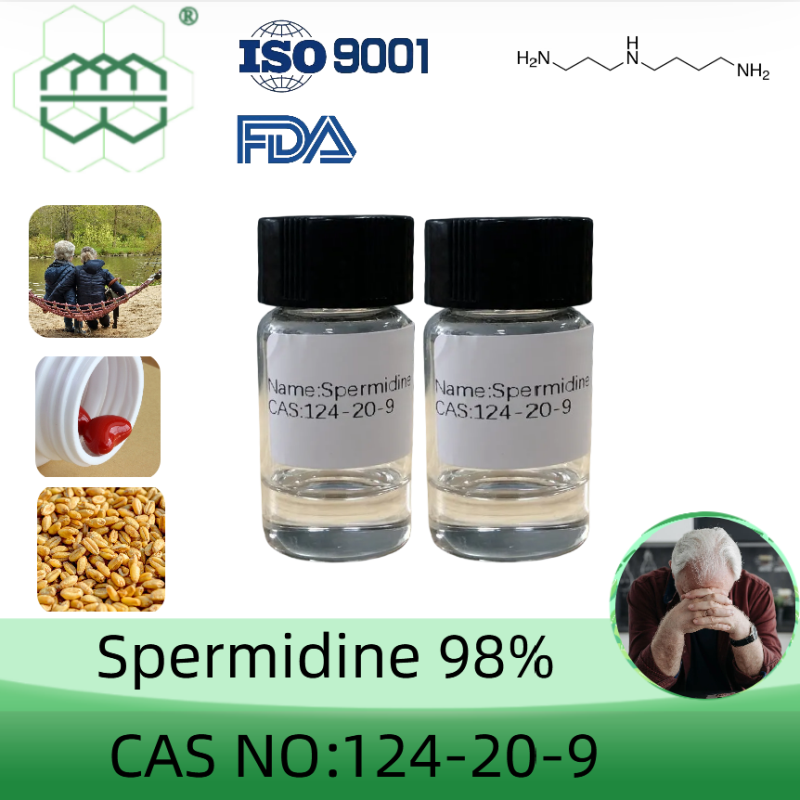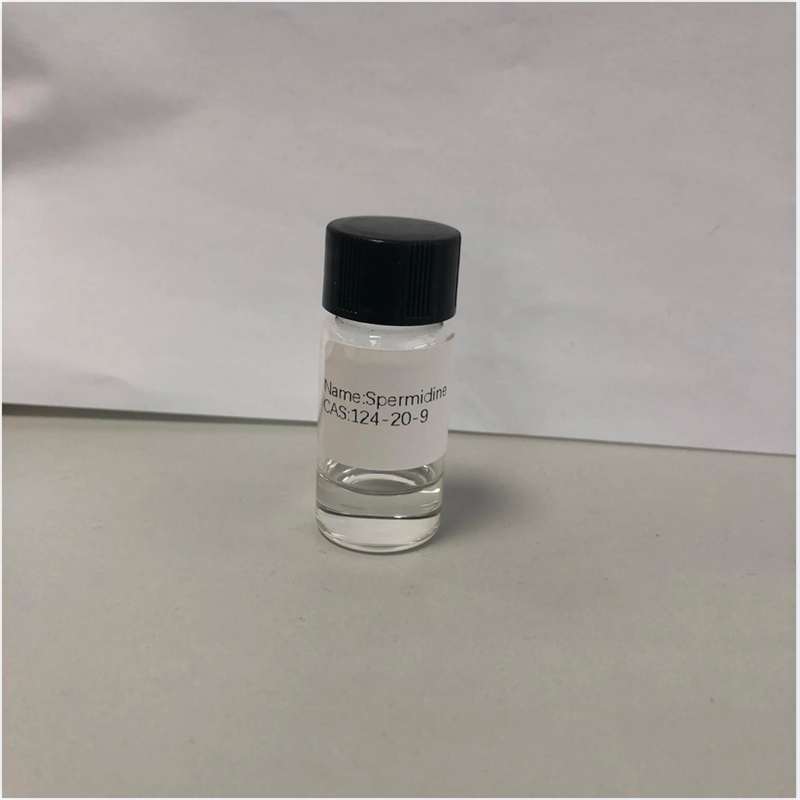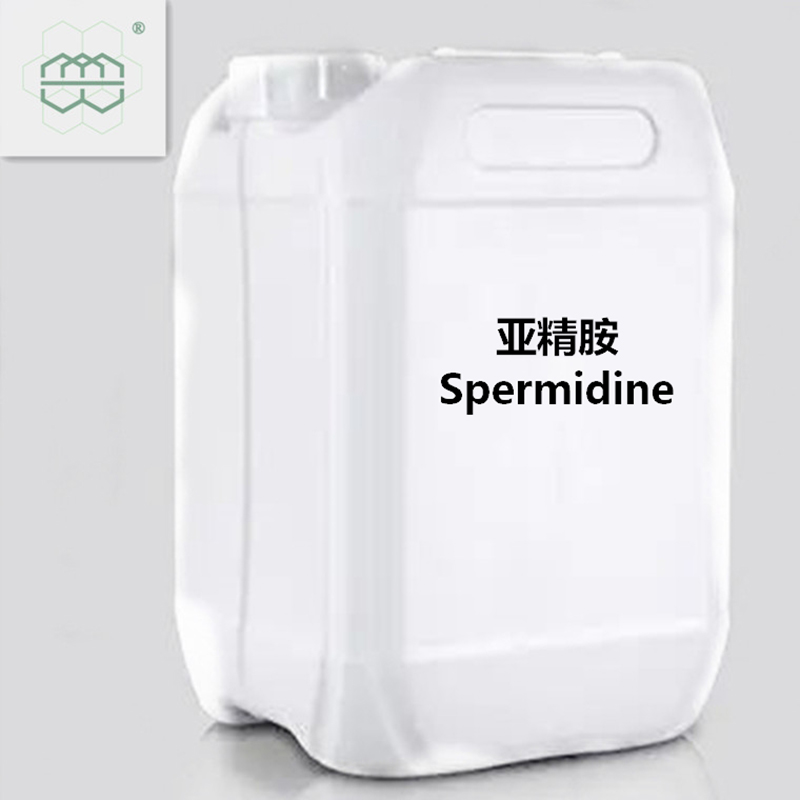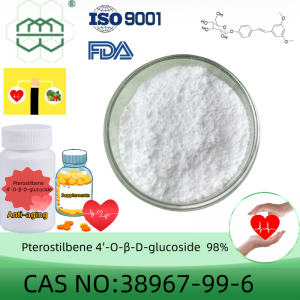Spermidine liquid manufacturer CAS No.: 124-20-9-0 98.0% purity min. for supplement ingredients
Product Parameters
|
Product name |
Spermidine |
|
Other name |
N-(3-Aminopropyl)-1,4-butanediamine; SpermidineN-(3-Aminopropyl)-1,4-butanediamine;4-azaoctamethylenediamine |
|
CAS Number |
124-20-9 |
|
Molecular formula |
C7H22N3 |
|
Molecular weight |
148.29 |
|
Purity |
98.0% |
|
Appearance |
Colorless transparent liquid |
|
Packing |
1 kg/bottle, 20-25kg/barrel |
|
Application |
Dietary supplement material |
Product introduction
Spermidine, a low molecular weight aliphatic carbide containing 3 amine groups, is one of the natural polyamines present in all living organisms. One of the important raw materials for drug synthesis is widely used in the synthesis of pharmaceutical intermediates. Spermidine maintains cell membrane stability, increases antioxidant enzyme activity, and improves photosystem II (PSII) and related gene expression. Spermidine also significantly reduced H2O2 and O2.- levels. Spermidine is a precursor of spermidine, derived from putrescine, which promotes the structural stability of cell membranes and nucleic acids. Spermidine has a variety of amazing effects, including but not limited to regulating circadian rhythm, improving hypertension, protecting cardiovascular, preventing Alzheimer's, boosting immunity, fighting cancer and even anti-aging...
Feature
Spermidine is a naturally occurring polyamine compound commonly found in food. It is essential for cell growth and survival. Spermidine maintains cell membrane stability, increases antioxidant enzyme activity, and improves photosystem II (PSII) and related gene expression. Spermidine also significantly reduced H2O2 and O2.- levels. Colorless transparent liquid, soluble in water, alcohol and ether; It is hygroscopic.
Applications
Spermidine is involved in many biological processes in vivo, such as regulating cell proliferation, cell aging, organ development, immunity, cancer and other physiological and pathological processes. Recent studies have shown that spermidine plays an important role in regulating synaptic plasticity, oxidative stress and autophagy in the nervous system. Spermidine can slow protein aging. Because different molecular weight proteins may play different roles in the aging process, some large molecular weight proteins may play a key role in controlling the aging process of leaves. Once these proteins begin to degrade, aging is inevitable, and controlling the degradation of these proteins can delay the aging process.













